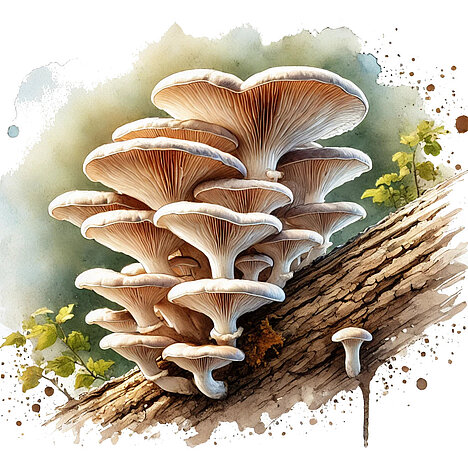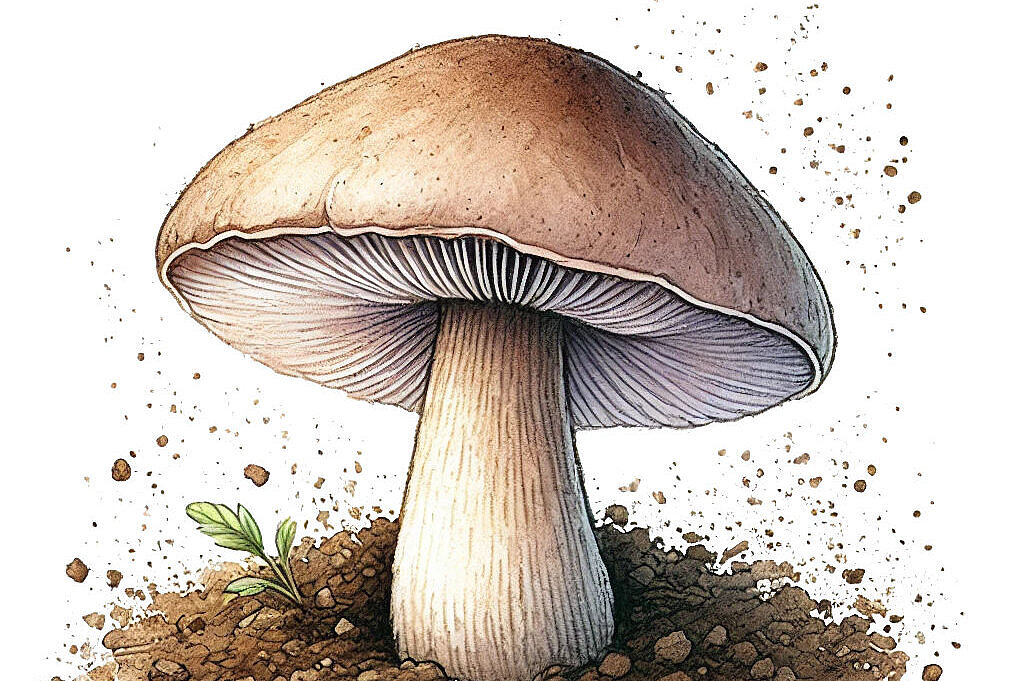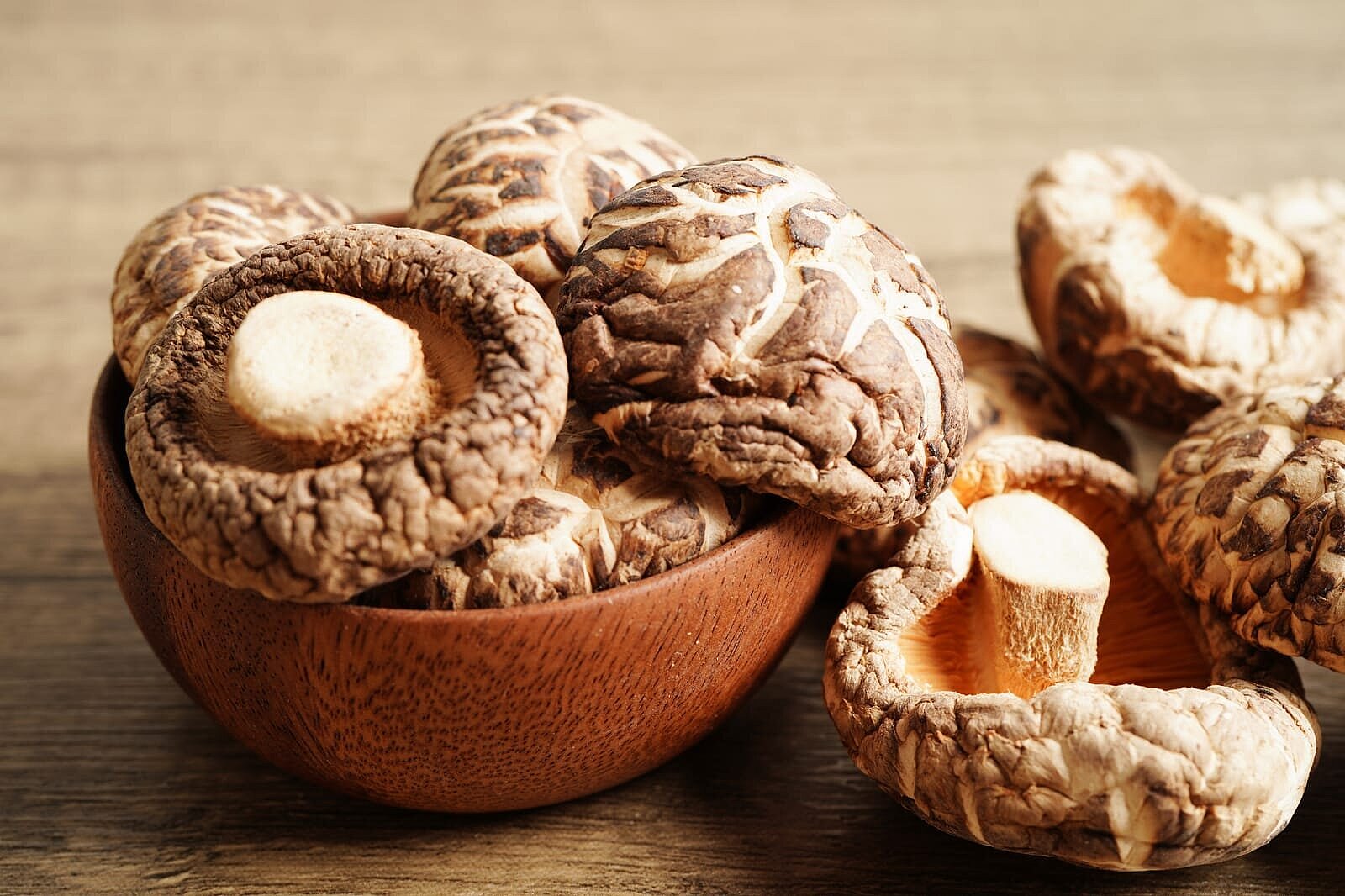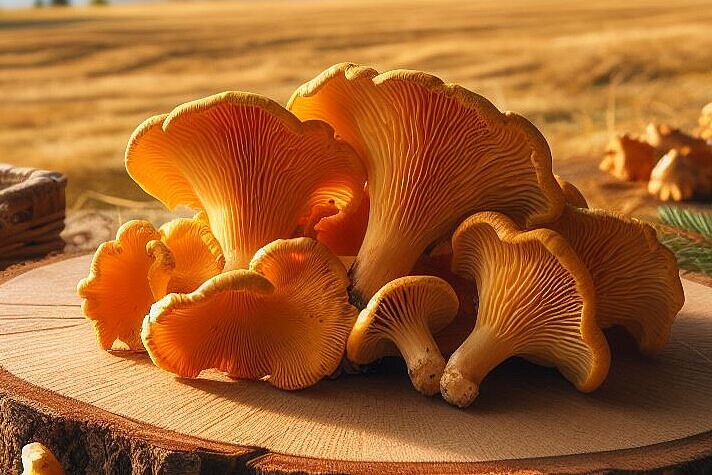Oyster mushrooms

What are oyster mushrooms?
Oyster mushrooms (Pleurotus ostreatus) are edible and medicinal mushrooms that are also known as oyster mushrooms, veal mushrooms or winter mushrooms. They grow in clusters on deciduous or coniferous trees and are found all over the world. They have a delicate, aromatic taste and a firm, white consistency. They are rich in protein, vitamins (especially B vitamins), minerals (especially potassium and manganese) and antioxidants. They also contain various organic compounds that can have positive effects on health.
What are the benefits of oyster mushrooms for dogs?
Oyster mushrooms can have many benefits for your dog if you prepare them correctly and feed them in moderation. Here are some of them:
- They strengthen the immune system and protect against infection, inflammation and cancer.
- They relax the muscles, joints, tendons and ligaments and promote bone and cartilage formation. This is particularly good for dogs with musculoskeletal disorders or osteoporosis.
- They support digestion and intestinal flora by providing enzymes that break down fats and proteins. This can also help to lower cholesterol levels.
- They protect the liver from harmful substances and prevent tumors from metastasizing.
What are the disadvantages of oyster mushrooms for dogs?
While oyster mushrooms are healthy, they are not suitable for every dog. There are some disadvantages or risks that you should be aware of:
- They can be difficult to digest if fed raw. This is due to the high fiber content and chitin, a substance found in the cell wall of mushrooms. This can lead to flatulence, diarrhea or stomach pain.
- They can be poisonous if they are collected or identified incorrectly. There are many types of mushrooms that look similar to oyster mushrooms but are poisonous or inedible. You should therefore only buy or collect mushrooms that you can identify with certainty or have them checked by an expert.
- They can trigger allergies or intolerances. Some dogs are sensitive to mushrooms or certain ingredients in them. This can manifest itself in skin rashes, itching or breathing difficulties. When you give your dog oyster mushrooms for the first time, you should therefore carefully observe how he reacts to them.
How do you prepare oyster mushrooms for dogs?
If you want to feed your dog oyster mushrooms, you should follow a few tips on how to prepare them:
- Wash the mushrooms thoroughly and remove the stem.
- Boil the mushrooms in water or stock for at least 15 minutes. This makes them more digestible and kills any germs.
- Cut the mushrooms into small pieces or puree them. This makes them easier to chew and swallow.
- Mix the mushrooms into your dog's normal food or give them as a treat between meals.
- Do not use any spices, oils or other ingredients that could be harmful to dogs.
How much oyster mushrooms can you give your dog?
Although oyster mushrooms are healthy, they are not a complete food for dogs. They should only be used as a supplement or as a change to the normal food. The amount depends on the size, age and health of your dog. As a rule of thumb, do not give your dog more than 10 percent of its daily energy requirement in oyster mushrooms. This corresponds to about one tablespoon per kilogram of body weight.
Oyster mushrooms are tasty and healthy mushrooms that you can feed your dog if you keep a few things in mind. They can support your dog's immune system, digestion, joints and liver and protect against diseases. However, you should make sure that you only use fresh and safe mushrooms, cook them well and feed them in small quantities. If you do this, you can offer your dog a great change and do him some good.
Properties 11
Are you looking for other ingredients with a specific property?
Just click on them to find more.
If you notice any signs of hypersensitivity or poisoning in your dog, you should see your vet immediately. We are not a substitute for a vet, but we try to be as accurate as possible. Every dog reacts differently and we recommend you get a second opinion or consult your vet if in doubt.
Stay healthy and take good care of your four-legged friend!😊
Similar to Oyster mushrooms
Champignons are also known as Egerlinge or Angerlinge and are one of the most cultivated mushrooms in the world. They are descended from the meadow mushrooms that grow in the wild. Mushrooms have a...
Shiitake mushrooms are edible mushrooms that originally come from Asia. They grow on logs or slices of wood and have a brown cap with white lamellae. Their name translates as "mushroom of the...
Portobello mushrooms are a type of mushroom that are often used as a meat substitute due to their size and meatiness. They are rich in nutrients such as protein, fiber and vitamins. They are...
Chanterelles are a type of mushroom from the stubble mushroom family. They have a yolk to golden yellow cap, which is funnel-shaped, and ridges on the underside of the cap that run down the stem....



